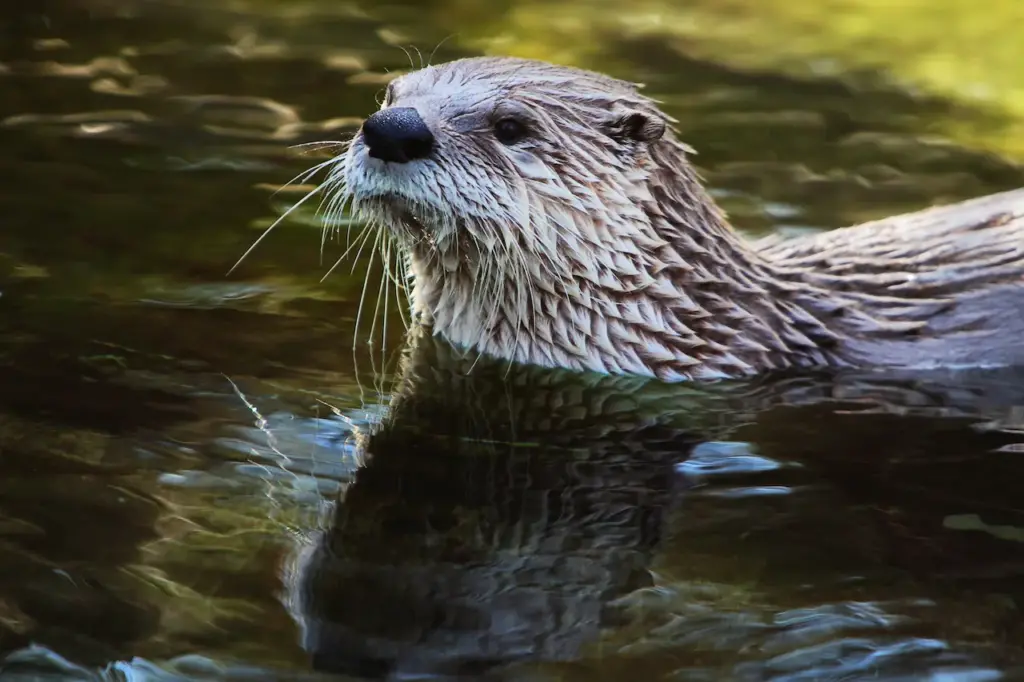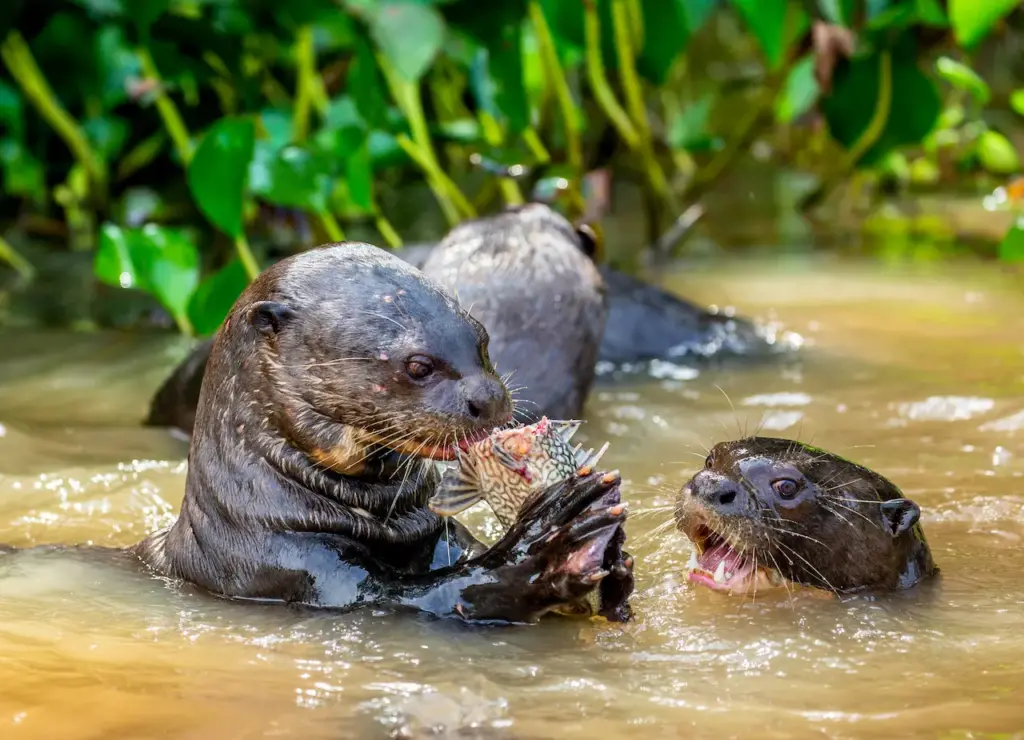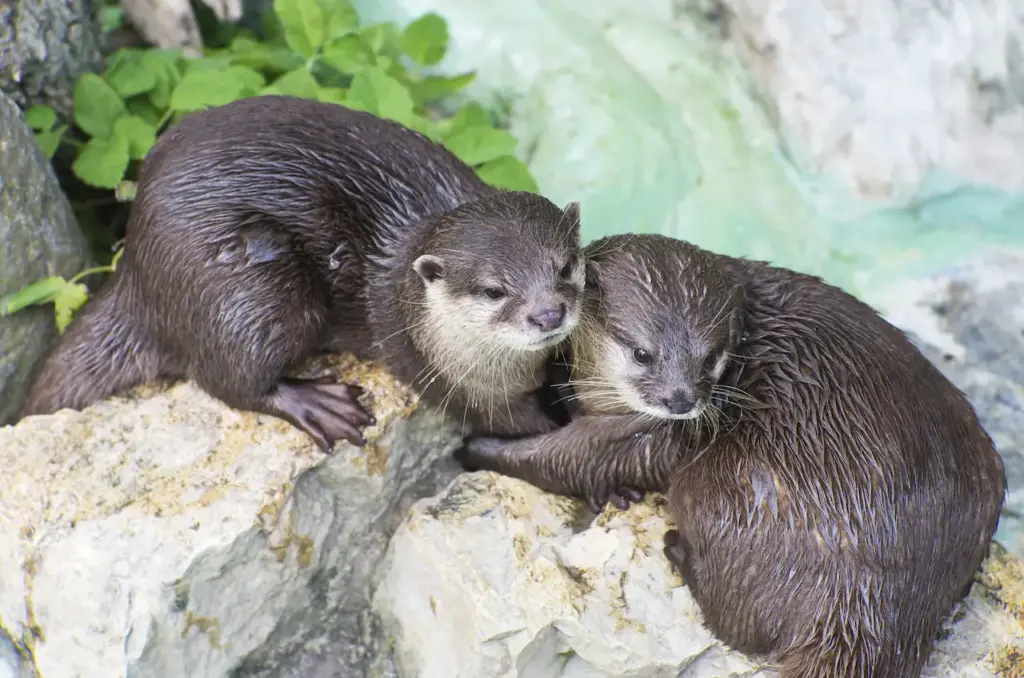What Eats An Otter?
Categories
- Accipitridae (1)
- Acrididae (1)
- Algae (2)
- Alligatoridae (1)
- Amoebidae (1)
- Amphibians (3)
- Anatidae (1)
- Anguillidae (1)
- Arachnids (2)
- Bears (2)
- Big Cats (3)
- Birds (13)
- Bovidae (5)
- Bufonidae (1)
- Camelids (1)
- Cameras (1)
- Canines (13)
- Caridea (1)
- Carnivora (10)
- Castoridae (1)
- Cats (5)
- Cebidae (1)
- Cephalopod (1)
- Cervidae (2)
- Cetacean (1)
- Chondrichthyes (1)
- Crocodilia (2)
- Crustaceans (4)
- Culicidae (1)
- Cyaneidae (1)
- Dasypodidae (1)
- Dasyurids (1)
- Deer (1)
- Delphinidae (1)
- Desktop (1)
- Didelphidae (1)
- Dinosaurs (1)
- Dogs (13)
- Dolphins (2)
- Echinoderms (1)
- Education (10)
- Elephantidae (1)
- Equine (1)
- Erethizontidae (1)
- Erinaceidae (1)
- Farming (1)
- Felidae (5)
- Fish (5)
- Food Chain (31)
- Food Web (2)
- Formicidae (1)
- Frugivore (1)
- Gaming (1)
- Gastropods (1)
- Giraffids (1)
- Great Apes (2)
- Health Conditions (3)
- Herbivore (4)
- Hi-Fi (1)
- Hippopotamidae (1)
- Hominidae (1)
- Insects (10)
- Invertebrates (2)
- Keyboards (1)
- Laptops (1)
- Leporidae (1)
- Mammals (23)
- Marsupials (4)
- Mephitidae (1)
- Microchiroptera (1)
- Mollusks (2)
- Mongoose (1)
- Muridae (1)
- Nocturnal Animals (1)
- Odobenidae (1)
- Omnivore (2)
- Phasianidae (1)
- Phocidae (1)
- Plankton (1)
- Plants (2)
- Primate (1)
- Ranidae (1)
- Reptiles (7)
- Rhinocerotidae (1)
- Rodents (5)
- Salamandridae (1)
- Scarabaeidae (1)
- Sciuridae (2)
- Sharks (1)
- Shellfish (1)
- Sound (1)
- Spheniscidae (1)
- Suidae (1)
- Superfamily Papilionoidea (1)
- Theraphosidae (1)
- What Eats (5)
Otters are semi-aquatic mammals that live in a variety of watery habitats, including rivers, lakes, wetlands, and coastlines.
They have a unique diet that is suited to their aquatic lifestyle. In this article, we’ll take a look at what eats otters as well as explore what otters eat themselves.
What Eats Otters? Otter Predators
Otters may be agile and swift in the water, but they do have several natural predators to watch out for.
The specific predators that eat otters depend on where in the world they live and what kind of otter species they are. Here are some of the main predator threats facing otters:
Table of Contents
ToggleLand Predators
On land, otters can fall prey to large cats, bears, wolves, coyotes, and even some bird species. Land predators will catch otters as they come onshore or on land to give birth.
- Bears – In North America, bears are a major predator of otters. Grizzly bears, black bears, and polar bears have all been known to hunt otters opportunistically for food.
- Wolves & Coyotes – Wolves and coyotes pose a danger to otter pups if they are left unattended, even briefly, by their mothers. They may also attack juvenile and weaker adult otters.
- Big Cats – In some parts of the world, big cats such as leopards, jaguars, and cougars prey on otters. They stalk and ambush them on land or in shallow water.
- Eagles – Large birds of prey, like bald eagles, will swoop down and grab otter pups from the shoreline and shallow waters.
Aquatic Predators
In the water, otters need to watch out for predatory sharks, crocodiles, killer whales, and large predatory fish.
- Sharks – Some shark species will opportunistically prey on otters, especially smaller sea otters. Great white sharks, tiger sharks, and bull sharks are potential otter predators.
- Crocodiles – Crocodiles are adept at catching otters in murky swamp waters, estuaries, or rivers. Their powerful jaws and lightning-fast strikes make them dangerous.
- Killer Whales – Killer whales are the main predators of sea otters. Using coordinated hunting techniques, they are able to hunt and consume a large number of sea otters as part of their diet.
- Moray Eels – Giant moray eels and other large eel species may eat young or smaller otters. Their sharp teeth can deliver a vicious bite.
- Snakes – Large anacondas and pythons pose a threat to otters through constriction and suffocation. Water snakes may also eat otter pups.
Additional Threats
Aside from direct predation, otters also face threats from human activities like habitat destruction, pollution, oil spills, and fishing practices like gillnetting.
These dangers can kill otters or reduce their food sources. On land, vehicle strikes are another hazard as otters crossroads between waterways.
What Do Otters Eat? Otter Diets
Now, let’s take a look at what comprises an otter’s diet. Their eating habits vary between sea, river, and giant otters:
Sea Otters
Sea otters mainly feed on marine invertebrates, including crustaceans like crabs, mollusks like clams and mussels, and echinoderms like sea urchins and sea stars. Their diet includes:
- Crabs
- Clams
- Mussels
- Snails
- Sea urchins
- Squid
- Octopuses
- Fish
- Shrimp
Sea otters dive to the ocean floor to hunt for prey and surface to eat while floating on their backs. They use rocks to crack open hard shells. Sea otters consume around 25% of their body weight in food each day to maintain their high metabolism.
River Otters
River otters are carnivorous, feeding on a variety of river, lake, swamp, and coastal dwelling prey. Their diet commonly includes:
- Fish – carp, perch, suckers, bullheads, sunfish, bass, trout
- Crustaceans – crayfish, crabs
- Amphibians – frogs, newts
- Reptiles – turtles, snakes, small alligators
- Birds – ducks, coots, swans
- Insects
- Sometimes, small mammals like rabbits and mice.
River otters are opportunistic and will hunt whatever prey is most abundant. They dive and use their long whiskers to detect prey underwater, even in darkened or murky conditions. River otters catch multiple small meals throughout the day.
Giant Otters
Giant otters are apex predators in their Amazonian river habitats. They feed mainly on fish, up to 10 pounds per day, including:
- Piranhas
- Catfish
- Perch
- Characins
- Cichlids
They hunt cooperatively in family groups to surround and corral fast-moving fish. Giant otters expertly drive fish into mud banks or vegetation to seize them. They may also occasionally eat reptiles, birds, and small mammals.
Hunting Techniques
Otters have specialized adaptations and techniques for hunting effectively:
- Sensitive whiskers to detect prey by touch in murky water
- Sharp claws for grabbing slick, wriggling prey
- Muscular tails propel through water in pursuit
- Ability to dive deep and hold breath for 4-8 minutes
- A layer of insulating air or water trapped in fur to stay warm while swimming
- Floating on the back to eat while still in the water (sea otters)
- Rocks used as crude tools to break open hard shells (sea otters)
- Hunting cooperatively in family groups (giant otters)
Their speed, agility, and fish-catching skills in the water make otters perfectly adapted for their aquatic existence.
Otter Habitats Around the World
Otters are found on every continent except Australia and Antarctica. They inhabit a wide range of aquatic and marine environments. Different otter species thrive in different habitat types:
Sea otters live in coastal waters of the northern Pacific Ocean. They are found in shallow, rocky reefs with dense kelp forest canopies offshore.
These areas are rich hunting grounds providing ample food sources like sea urchins, abalone, clams, and crabs. Sea otters have the thickest fur of any mammal to insulate them against the cold oceans.
Threats Facing Otters
While otters are well equipped as predators, they face several threats from human activities:
- Habitat destruction reduces wetland areas that provide food and shelter. Pollution from agricultural and industrial runoff also degrades water quality in otter habitats.
- Overfishing of rivers, lakes, and coastal waters depletes the fish populations that otters rely on for the bulk of their diet.
- Oil spills coat the fur of otters, compromising the water-repellent and insulating properties. Clean-up efforts further disturb them.
- Roadkill is a significant cause of mortality as otters move over land between disconnected aquatic habitats.
- Hunting for their thick, luxurious fur was a factor in the past. International bans on otter fur trading have helped populations recover in recent decades.
- Zoos, aquariums, and wildlife rehabilitation centers play an important role in preserving threatened otter species through captive breeding and reintroduction programs. These help offset habitat loss and other declining population pressures in the wild.
Protecting and restoring vital wetland habitats will be crucial for the future sustainability of wild otter populations. Careful management practices can help strike a balance between human use of landscapes and maintaining healthy ecosystems for otters and other wildlife.
Conclusion
Otters occupy an important ecological niche as both predator and prey in their respective food chains. On land and in water, they are preyed upon by a range of natural predators that help keep populations in balance.
Otters themselves are skilled hunters who consume a variety of fish, aquatic invertebrates, amphibians, and other small animals.
Their aquatic lifestyles and adaptations allow them to thrive in rivers, wetlands, and coastal marine environments around the world by feeding on abundant food sources in these habitats. With their unique hunting skills and dietary habits, otters are fascinating semi-aquatic carnivores.



